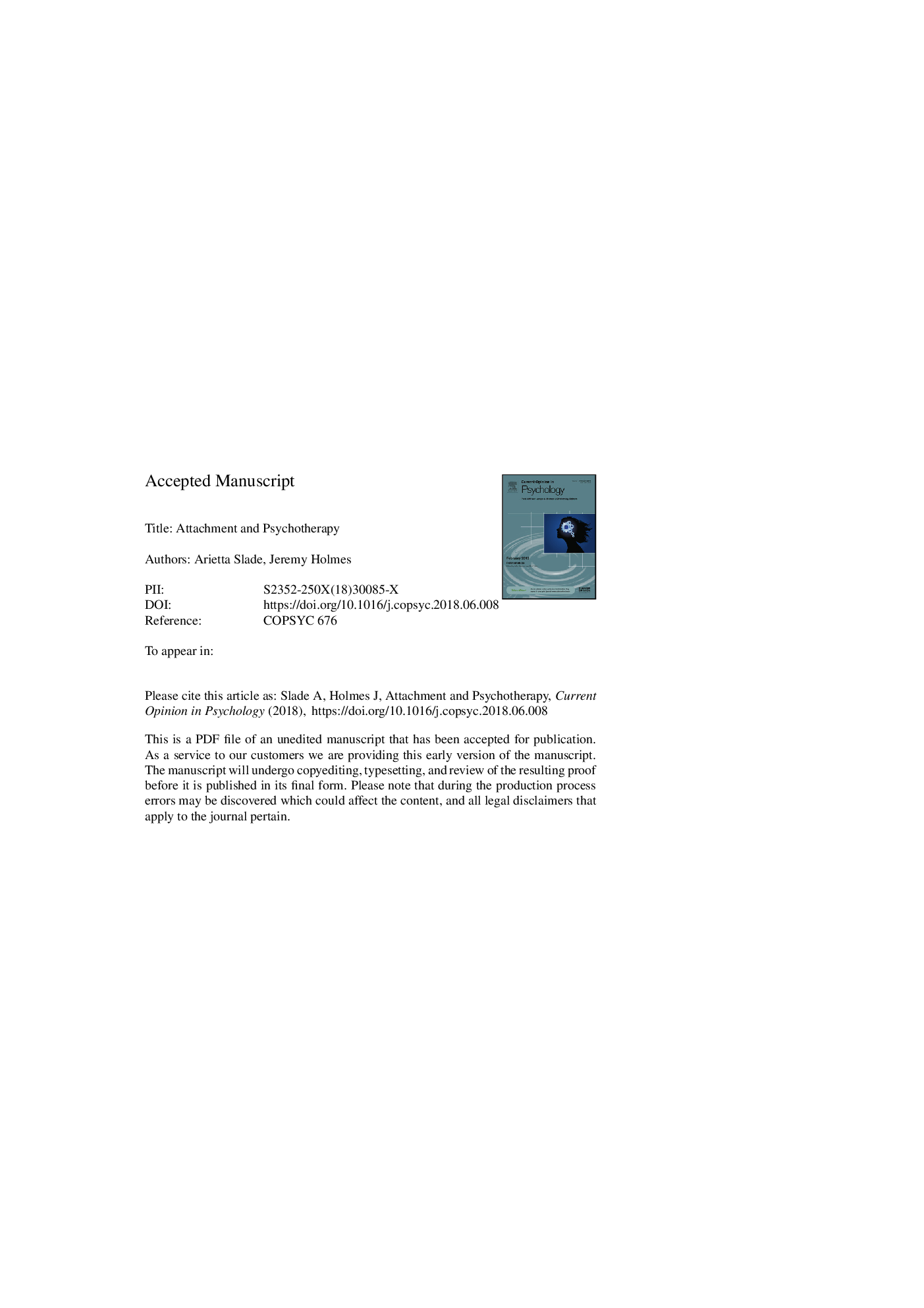| کد مقاله | کد نشریه | سال انتشار | مقاله انگلیسی | نسخه تمام متن |
|---|---|---|---|---|
| 7239856 | 1471304 | 2019 | 18 صفحه PDF | دانلود رایگان |
عنوان انگلیسی مقاله ISI
Attachment and psychotherapy
ترجمه فارسی عنوان
پیوست و روان درمانی
دانلود مقاله + سفارش ترجمه
دانلود مقاله ISI انگلیسی
رایگان برای ایرانیان
ترجمه چکیده
تئوری ضمیمه یک مدل برای درک (1) توسعه در درون روابط اولیه و تشکیل دهنده کودک و (2) جهت گیری بزرگسالان نسبت به روابط مادامالعمر، روابط اجتماعی و اکتشاف مستقل است. محققان روان درمانی پیگیری ضوابط بیمار را با اتحاد، فرآیند و نتایج درمانی مرتبط کرده اند. مطالعات مربوط به تجزیه و تجزیه و تحلیل گفتمان رفتارهای مربوط به جلسات را با الگوهای مختلف وابستگی های ناامن مرتبط می کند و روش های متمایز کار با آنها را شناسایی می کند. سازمان پیوستگی درمانگر و ظرفیت ذهنی خود نیز نقش مهمی در موفقیت درمان دارد. اصول کلیدی روان درمانی متعهد شده عبارتند از: 1) روابط دلبستگی درمانگر و بیمار، مرکز ترویج تغییرات است؛ (2) شناخت درونی پویایی دلبستگی در طی درمان، فرموله کردن و مداخله را هدایت می کند و (3) درمان می تواند پیوستگی را تغییر دهد دینامیک
موضوعات مرتبط
علوم انسانی و اجتماعی
روانشناسی
روان شناسی کاربردی
چکیده انگلیسی
Attachment theory provides a model for understanding (1) development within the context of the child's primary, and formative relationships, and (2) an adult's orientation toward lifelong intimate connections, social relationships, and autonomous exploration. Psychotherapy researchers have linked measures of patient attachment with therapeutic alliance, process, and outcomes. Studies of ruptures and discourse analysis distinguish in-session behaviors associated with different patterns of insecure attachments, and identify distinct ways of working with them. The therapist's own attachment organization and mentalizing capacity also play a significant role in therapeutic success. The key tenets of attachment-informed psychotherapy are: (1) the therapist-patient attachment relationship is central to promoting change, (2) the in vivo recognition of attachment dynamics during therapy guides formulation and intervention, and (3) therapy can reshape attachment dynamics.
ناشر
Database: Elsevier - ScienceDirect (ساینس دایرکت)
Journal: Current Opinion in Psychology - Volume 25, February 2019, Pages 152-156
Journal: Current Opinion in Psychology - Volume 25, February 2019, Pages 152-156
نویسندگان
Arietta Slade, Jeremy Holmes,
